
Cracker is an American rock band, formed in 1990 by lead singer David Lowery and guitarist Johnny Hickman. The band's first album Cracker was released in 1992 on Virgin Records; it included the single "Teen Angst ", which went to #1 on the U.S. Modern Rock chart. The band's follow-up, the 1993 album Kerosene Hat included the hit songs "Low", "Get Off This", and "Euro-Trash Girl".
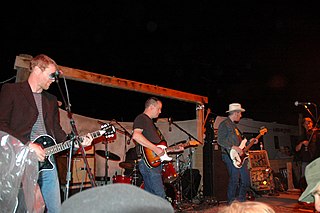
Camper Van Beethoven is an American rock band formed in Redlands, California in 1983, later based in Santa Cruz and San Francisco. Their style mixes elements of pop, ska, punk, folk, alternative, country, and world music, amongst other genres. The band initially polarized audiences within the hardcore punk scene of California's Inland Empire and then found wider acceptance and, eventually, an international audience. Their strong iconoclasm and emphasis on do-it-yourself values proved influential to the burgeoning indie rock movement.

Key Lime Pie is a 1989 album by Camper Van Beethoven (CVB). It was the band's final album before breaking up in 1990, although the band has reunited and released new material in recent years. It was produced by Dennis Herring, who had also produced the band's previous album, Our Beloved Revolutionary Sweetheart.
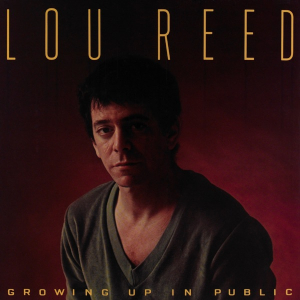
Growing Up in Public is the tenth solo studio album by American rock musician Lou Reed, released in April 1980 by Arista Records.
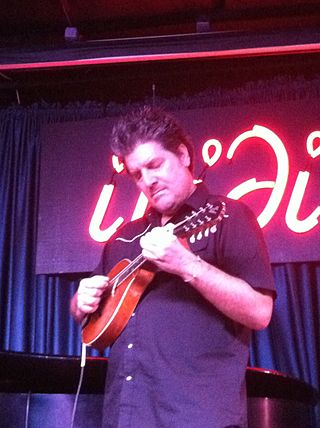
David A. Immerglück is an American multi-instrumentalist who is best known as a guitarist in the alternative rock bands Counting Crows, Camper Van Beethoven and the Monks of Doom, as well as for his tenure with American singer songwriter John Hiatt. A versatile musician, Immerglück plays mandolin, pedal steel guitar, bass, slide guitar, electric sitar, keyboards, and sings.

Lulu is an album by the Minneapolis-based band Trip Shakespeare, released in 1991. The band supported the album with a North American tour. "Bachelorette" was a modern rock hit.

Gregory Allen Lisher is the lead guitar player for Camper Van Beethoven. He is also one of the founding members of the Camper Van Beethoven spin-off Indy prog rock group Monks of Doom.
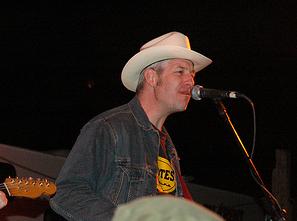
Victor Krummenacher is an American bass guitarist and guitarist. He is a founding member of alternative rock band Camper Van Beethoven.

The Monks of Doom is an American alternative rock band, formed in California in 1986. The band's music draws from post-punk, progressive rock, indie rock, psychedelic and folk rock traditions. The group is a side project of the band Camper Van Beethoven, with whom all Monks of Doom members have been involved.
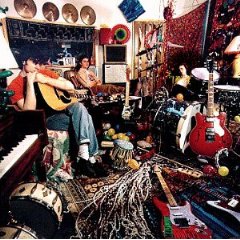
Miss Happiness is the debut studio album by the American alternative rock band Walt Mink, released in 1992. It contains a cover of Nick Drake's "Pink Moon". The band supported the album with a North American tour.
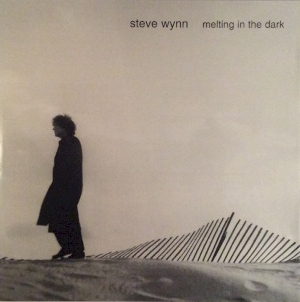
Melting in the Dark is an album by the American musician Steve Wynn, released in 1996. It was recorded with a band consisting of all the members of Come. Wynn supported the album by touring with a backing band that included members of Gutterball, Zuzu's Petals, and Love Tractor.
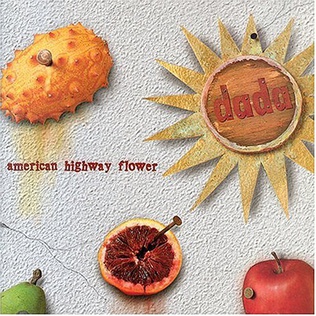
American Highway Flower is the second album by the American band dada, released in 1994. "All I Am" peaked at No. 27 on the Billboard Modern Rock Tracks chart. The album sold more than 50,000 copies during its first year of release.

Teenage Symphonies to God is the second album by the American band Velvet Crush, released in 1994. The title of the album is a reference to Brian Wilson's description of the music he was creating for Smile. Teenage Symphonies to God had sold around 20,000 copies by the end of the 1990s.

Kabu is the second album by the Ethiopian singer Aster Aweke. It was released in 1991 via Columbia Records.

Tenement Angels is an album by the American musician Scott Kempner, released in 1992. Kempner supported the album by touring with Jason & the Scorchers.

Beneath the Rhythm and Sound is an album by the American band the Ocean Blue, released in 1993.

Cakewalk is an album by the American alternative rock duo House of Freaks, released in 1991. It was the duo's first album for a major label.

Why We Fight is an album by the English musician John Wesley Harding, released in 1992. As with many of Harding's albums, the title is a reference to Frank Capra's work; Harding had considered using the Kinks homage Give the People What I Want as the title. Harding described the album's sound as "folk noir".

War and Peace is the second album by the American musician Syd Straw, released in 1996. Straw had been without a record label for four years prior to signing with Capricorn Records. The album title jokingly refers to War and Peace's almost 60-minute running time.

Surrender to Jonathan! is an album by the American musician Jonathan Richman, released in 1996. Richman was the first musician signed to Neil Young's Vapor Records. Richman supported the album by touring with a full band.




















